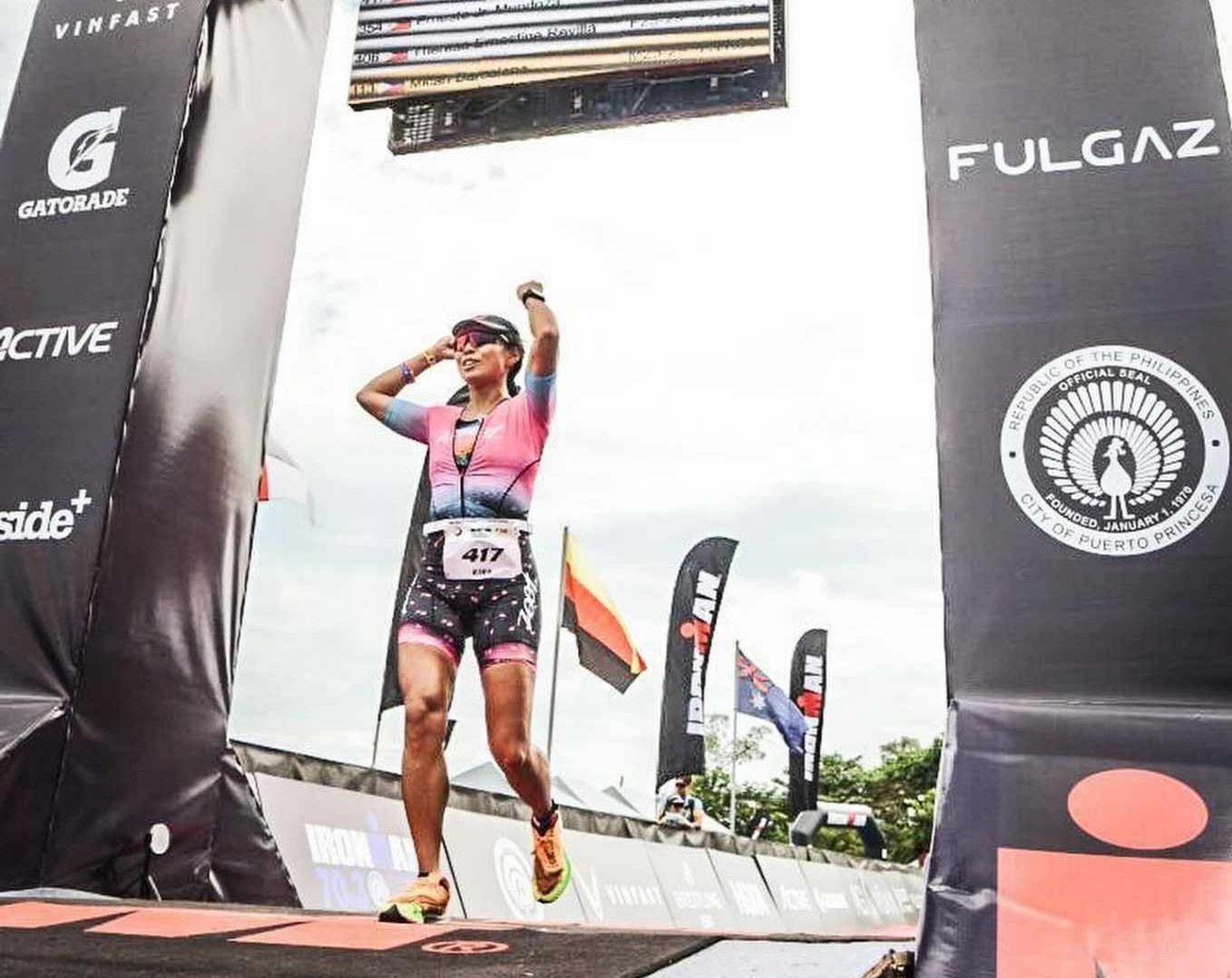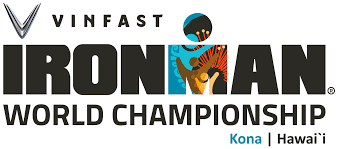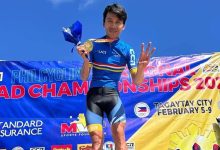Kira Wong’s Triumph: Juggling Motherhood & Ironman 70.3 Training
Inside the World of Athlete Mom Kira Wong: Balancing Family & Fitness

Dive into the captivating world of Kira Wong, a resilient triathlete and new mother, as she shares her unique journey balancing the rigors of training for the Ironman 70.3 Puerto Princesa with the demands of motherhood. Kira’s experience sheds light on the multifaceted challenges faced by athlete moms, offering valuable insights into her training regimen, overcoming obstacles, and harmonizing her passion for sports with family life. Discover how Kira navigates this complex balance and the strategies that have helped her succeed.
SBR.ph: As a new mom and a dedicated athlete, how did you balance training for the Ironman 70.3 Puerto Princesa with your responsibilities as a mother, especially while breastfeeding.
Kira: I have 3 children – ages 8, 5 and 1.5. My training plan for Ironman 70.3 Puerto Princesa started as soon as I was 6-months post-partum last year. After the pandemic, there was a strategic shift from “work-life balance” to “work-life integration” mindset at work. I applied this mindset to training as well. I focused on flexibility instead of obsessing with balance. I have, on several occasions, breastfed while on the bike trainer!
SBR.ph: You mentioned setting manageable expectations without aiming for podiums or specific times. How crucial was this mindset for your training and success.
Kira: I like setting the bar up high for myself. But post-partum, I had to assess my current limitations and agree on realistic end-results together with Coach Saul. Of course I could have asked for and be given workouts intended for a top age-grouper, but this would only set me up for failure. I want to complete every training session and feel a sense of accomplishment after each one, instead of being constantly demotivated.
SBR.ph: What were some significant challenges you faced during training, and how did you overcome them?
Kira: It only takes 1 sick kid to set back training significantly. Worse – if all 3 are sick – and this is often the case. I would be kept up the whole night because of the coughing fits or colds, checking temperatures, administering medicine or nebulizing.
When that happens, I scale back on the duration or intensity of the next day’s work-out, instead of skipping it. Total noob, but I am using Training Peaks for the first time, which assigns compliance colors to completed or incomplete work-outs. This is really helpful, as it steers me to aim for substantial compliance rather than missing or failing a workout.
SBR.ph: How has Coach Saul’s guidance helped you achieve your athletic goals, especially in smashing your run PRs and completing your first duathlon and standard distance triathlon?
Kira: It was serendipitous that Coach Saul was expecting a new baby when I first reached out to him. He was helping take care of a newborn throughout his own training for Ironman 70.3 Puerto Princesa. I felt that my training plans came from a person who genuinely understood my situation.
There was actually no plan to beat any PRs. I was caught by surprise when I finished a fun run beating all of my 5km, 10km and 16km times significantly in one go. I was also very surprised with my performance in my first duathlon and in 5150 Dapitan. Coach Saul’s training plan and receptiveness to readjustments brought me up to the fitness level I didn’t expect I could reach.
SBR.ph: How do you handle pre-race nerves, and what advice would you give to other athletes who might experience similar feelings?
Kira: No pretty way of saying it. I went to the bathroom no less than 5x before race start, both for 5150 Dapitan and 70.3 Puerto Princesa. I was near-tears prior to every swim. Will get back to you on this once I’ve found the solution to nerves.
SBR.ph: How did you feel crossing the finish line of the Ironman 70.3 and what did this accomplishment mean to you personally?
Kira: When I dream about crossing the 70.3 finish-line arch, I get emotional. It has been close to 9 years since my last triathlon. The premise is mothers can do it all. We cannot. I wanted to get back into triathlon several times, as a solo athlete. But I simply could not find the time for it with all the getting pregnant, giving birth, caring for a newborn, x3. Over the years I have seen my age-group peers move on to longer distances, complete race after race, win one trophy after another, etc. I felt like I was outside, looking in, getting left behind.
But this recent accomplishment means I’m not a bystander anymore. I am present, and I am just soaking up this lovely feeling.
SBR.ph: How did breastfeeding impact your training and recovery, and what advice would you give to other athlete moms in similar situations?
Kira: When I started training again, my baby wouldn’t yet take the bottle. This means I could only be gone for 1-2 hours at a time before he would need to feed again. I did shorter but quality workouts, which we adjusted over time as my baby was able to stay fuller longer. I also scheduled my workouts when he would be still asleep, allowing me an additional hour or so on the bike or run. Eventually, he would take the bottle and I would bring my pump and a cooler when we go for a long ride.
SBR.ph: How important is family support in pursuing demanding athletic goals, and what role has your husband played in your success?
Triathlon may be a solo sport, but a team effort or – in my case – a family effort. It would be impossible to accomplish all of these without my family and our helpers taking care of the kids while we are out. My husband trains and races with me. He is stronger on the bike, so he leads our route and does the pacing. For trainings and races, I usually organize the logistics, pack the nutrition and other materials; he takes care of racking, packing, or assembling the bikes and other equipment. With the two of us busy working the whole day, I am very grateful to make these core memories. We are each other’s number one fan and critic. So cheesy but also so blessed – to be doing what you love with the person you love!
SBR.ph: What message do you have for new moms hesitant to pursue their athletic dreams post-pregnancy?
Kira: Take it slow, but don’t stop. Take your time, but don’t give up. Even when pregnant, I still continued to swim, bike and run. I would swim even up until the day I was due to give birth. I kept my SBR fitness, registered for fun runs, open water challenges. Before I gave birth to my second child, I entered the lottery for and got into the Tokyo
Marathon. Before I gave birth to my third child, I had a deferred registration to Ironman 70.3 Puerto Princesa. Having goals on the horizon really got me moving as soon as able, post-partum.
SBR.ph: What are your future goals in triathlon? Do you have any specific races or achievements you’re aiming for?
Kira: Registered for Lapu Lapu 70.3 in April 2024! Then I heard Bohol 5150 is a beautiful course, so I’d love to do that too.
SBR.ph: Can you share insights into your nutrition strategy, both pre-race and post-race, and how it has evolved since becoming a mother?
Kira: Taking care of a household, being fully present at work, training at odd hours – honestly every day feels like a race. To get through the day with enough energy for the next, good nutrition and recovery has to be and is already part of my way of life. But I am more particular now about taking in essential vitamins and probiotics than when I was younger.
SBR.ph: Could you walk us through a typical week of training? How do you balance intense workouts with rest and recovery?
Kira: Daily workouts with active recovery on Mondays. It’s swim, indoor trainer and treadmill runs early morning or after work on weekdays. Then long rides, long runs or long bricks on weekends. I try to manage, together with Coach Saul, the intensity level of my workouts. I prefer a balanced training, rather than having to balance intense, exhaustive training with rest and recovery, mindful that I still have work and children to care for.
SBR.ph: What advice would you give to someone just starting in triathlon, especially women and mothers?
Kira: Social media was not as prevalent then. Now, I would say that the progress, achievements and challenges of several female age-groupers are more visible and very relatable. These are inspiring. Extraordinary women doing extraordinary things on an ordinary day.
Someone starting out can simply train with a triathlon friend or friends, or seek out a coach who has group sessions and can set up the right connections. That said, I myself prefer training solo or with my husband only for now, because this set-up is more flexible in terms of schedule. Training with a group can take up a bit more time, which
moms of young children might not have enough to spare.
Kira Wong’s story is an empowering narrative that resonates with athlete moms and aspiring triathletes alike. Her blend of tenacity and pragmatism in juggling motherhood and athletic goals serves as a beacon of inspiration. This interview not only celebrates Kira’s triumphs in the face of unique challenges but also offers practical advice and encouragement for others following in her footsteps. It underscores the remarkable potential of determination, adaptability, and community support in redefining personal and athletic success.
All images via : Kira Wong



















